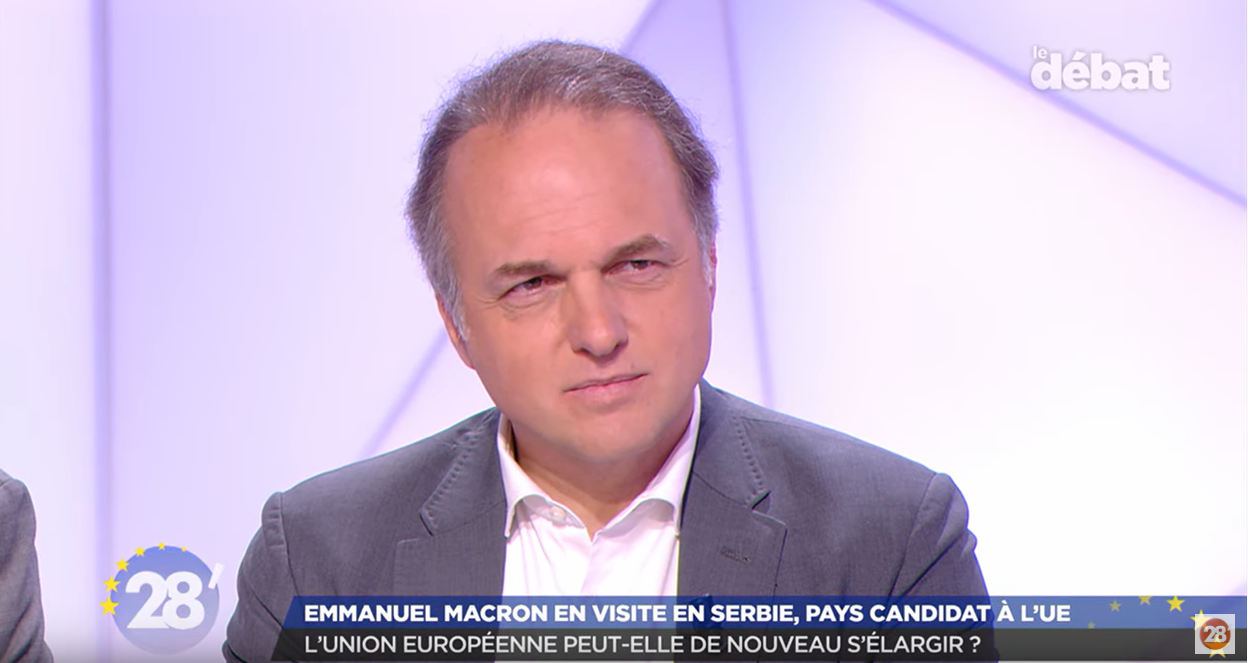On Arte: “The accession of the Balkans should not hinder the construction of a Europe-power”.

In the light of Emmanuel Macron’s visit to Serbia, one of the 5 candidate countries, Yves Bertoncini, President of the European Movement – France, discussed the possibility of an EU enlargement in the 28-minute Arte programme on 15 July 2019.
Facing Pascale Joannin, Director General of the Schuman Foundation, and Frédéric Farah, economist and researcher in Pantheon-Sorbonne, Yves Bertoncini, President of the European Movement – France, defends the accession of the Balkan countries to the European Union. “It is the accession of countries such as Turkey, Georgia or Ukraine that could be considered as a real enlargement“. According to him, for the Balkans it is different: these countries are in the middle of the European Union: “This is not an enlargement, but a consolidation. We have a hole in the racket. If we do not pursue this enlargement movement, which is in reality the movement to deepen the initial objective of European integration – stabilisation through trade – we will have greater problems with the Balkan region”. He stressed the need to act for geopolitical consolidation and stabilization of this geographical area in order to “keep these countries in our fold, attract them to us, rather than leave them to other influences – Russian, Turkish, American, Chinese”.
In response to Frédéric Farah’s fear of competition from the Balkan population on the European market in the event of accession, Yves Bertoncini pointed out that this competition would exist in any case, whether or not the country was a member of the European Union – he cited the example of Chinese competition or tax competition in Luxembourg in particular. “If we are talking about fiscal dumping, then let us return to the Europe of six since it is French nostalgia. But already at six there was this reality, so being at twenty-four, twenty-seven or thirty doesn’t change much”. For the President of the European Movement – France, we must not mix the issue of competition with that of accession, which could be achieved, he recalled, provided that these countries meet all the accession criteria, which is far from being the case.
Commenting on the refusal of “rich countries” such as Switzerland, Norway and Iceland to join the European Union, Yves Bertoncini recalled that they had nevertheless chosen to join the European Economic Area, as well as the Schengen area for some of them, which confirmed their need to trade with Europe and their desire to enjoy freedom of movement. They see Europe as a major economic area, unlike the project of a political Europe, led in particular by France. “Building a Europe-power is difficult, and it would have been difficult even for six people“. For him, this project must obviously be continued, even if it will not concern the twenty-eight Member States and even less the thirty-two – it will in any case be “a Europe of variable geometry that a possible enlargement in 5 or 10 years’ time to include a few Balkan countries will not be able to hinder“.
To watch the video again [14.20 – 33.24]